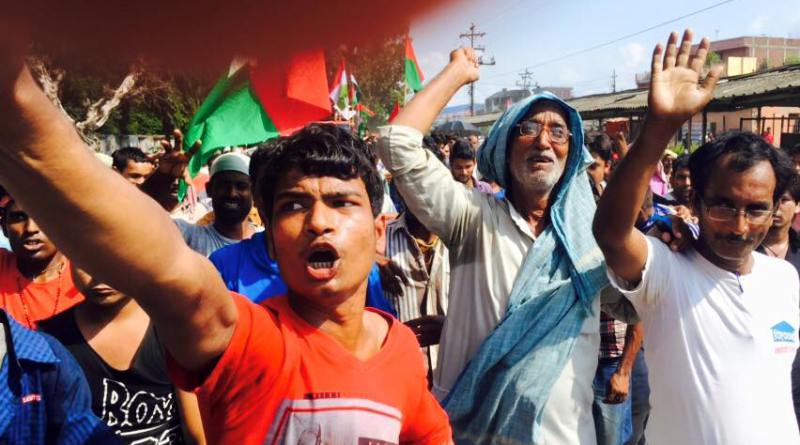A Brief History Of Violence In Nepal
ARUN BUDHATHOKI

KATHMANDU: When Cain killed Abel in the Book of Genesis the murderer ran away fearing the wrath of the omnipotent. He was punished and then vanished. This analogy is still relevant in the modern world—those who hurt others cannot go free unscathed, untouched. Still, in human history, those who resort to violence have often found themselves in a haven. For example, the perpetrator of the Tikapur incident was recently awarded monetarily by the government.
There’s no clear distinction between a state’s security and oppression if the citizen dies while struggling for certain rights from the elected rulers. The claim, however, is termed right or wrong based on the laws of the state. These laws yet again differ from one boundary to another. Take, for example, the Gorkha invasion. To some it is a historical milestone for Nepal’s foundation and to many a case of imperialism.
Nepal’s introduction to violence traces back to that Gurkha invasion and leads up to the bloody civil war. What’s frustrating is that this tiny nation hasn’t succeeded in escaping the clutches of violence till now. Are we doing something wrong? The answer is simple: violators go unpunished, usually. It is indeed saddening that the state itself protects those who hurt others and time only say if the ‘selective grief’ will overturn the table or not.
In a discussion with a fellow classmate from my alumni, he opined that selective grief is generated from our emotional connection with certain people. Madhesis in Nepal have long expressed their dissatisfaction about how they are treated like an Indian and rue that Nepali Indians in Darjeeling are treated like Nepalis.
The notion of Greater Nepal and the past state expansion promulgates that attitude among several non-Madheshi Nepalis. The way Sunil Chhetri and recent Miss Nepal Nikita Chandak are treated proves it. The former Indian footballer is often termed as a Nepali who plays for India when he’s an Indian citizen, whereas, the latter came under scrutiny for her dark-skin and connection with India. This dichotomic treatment, perhaps, has fueled Madheshi agitation so that they can establish their identity as a Madheshi and Nepali within their homeland. If the lawmakers and politicians saw them from a humanitarian perspective, only then there would be no violence and peace would unfurl.
States often view their neighbors from the angle of ‘enemy’ and this leads to choking humanitarian processes. Political players in Nepal treat each other based on their policies and ideologies. In return, the common people are affected. On the other hand, those who accumulate power rarely feel the brunt of the heat. If this is the case, then how can modern states protect its citizens? Nepal might have several laws but they are weakly implemented and at times it is nothing but a piece of paper. How can we then view agitation from a humanitarian perspective?
As we see the world from a humanitarian perspective then we will treat our humans, not as the enemy and the ‘other’ but as someone who’s like us but only speaks a different language and follows different culture and traditions. Isn’t it time that we separate ourselves from religion, dogmatism, and state biases? Maybe these are the reasons why we haven’t evolved fully all these years.
But violence is personal. It’s a national agenda and ‘others’ shouldn’t be involved in it. Yet state actors love to poke their nose in their smaller neighbor’s affair and expect them not to retaliate.
Darjeeling is burning again although the agitation of Gorkha Mukti Morcha isn’t a recent one. The presence of Nepali Indians in Darjeeling has confused plenty of West Bengal residents and other Indians too. Without delving into the historical complexity what I’d like to infer is Darjeeling is not Nepal’s issue and Madhesh is not India’s issue. However, Darjeeling is a humanitarian issue. Unfortunately, in the modern context, violence stemming from agitation transcends boundaries despite the effort of local actors to limit it within their fault lines.
Violence in the 22nd century needs to be viewed from a humanitarian case. We can no longer afford to let people die and suffer due to our divisive policies and agendas. How long can we afford to allow states to make violence a personal and national issue? It’s time we change the world by supporting the oppressed. This distinction, perhaps, can diffuse the ticking bomb that’s hell-bent on engulfing humanity.
(Arun Budhathoki is a Kathmandu-based freelance journalist. The views are his own)



